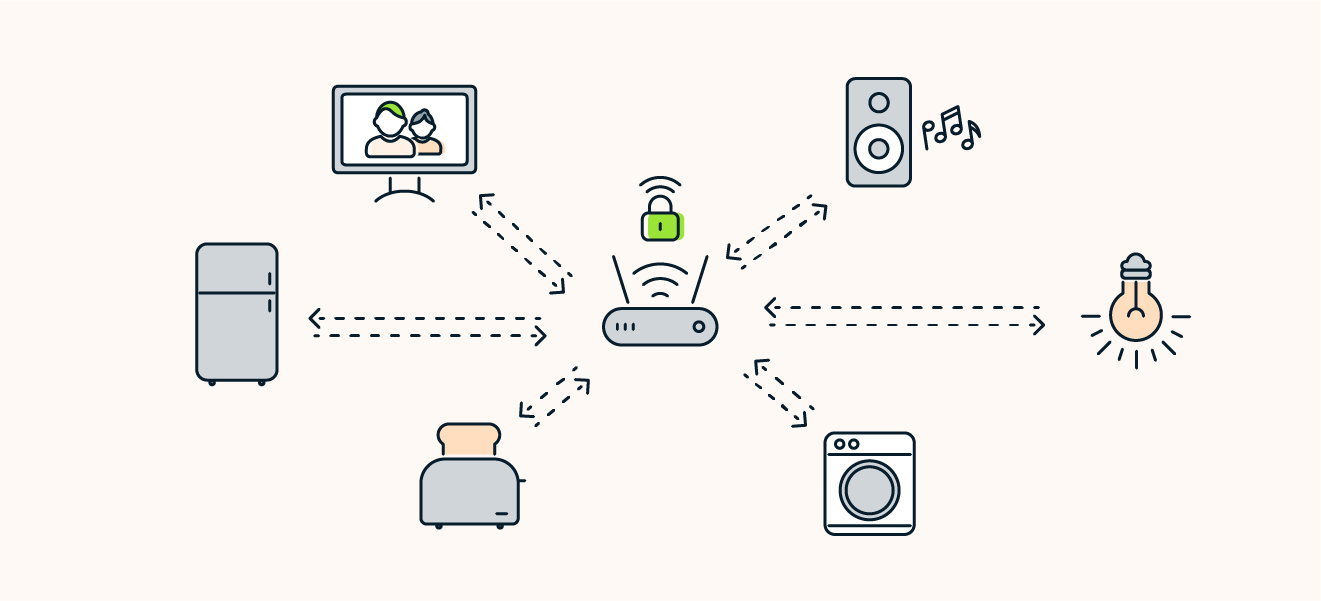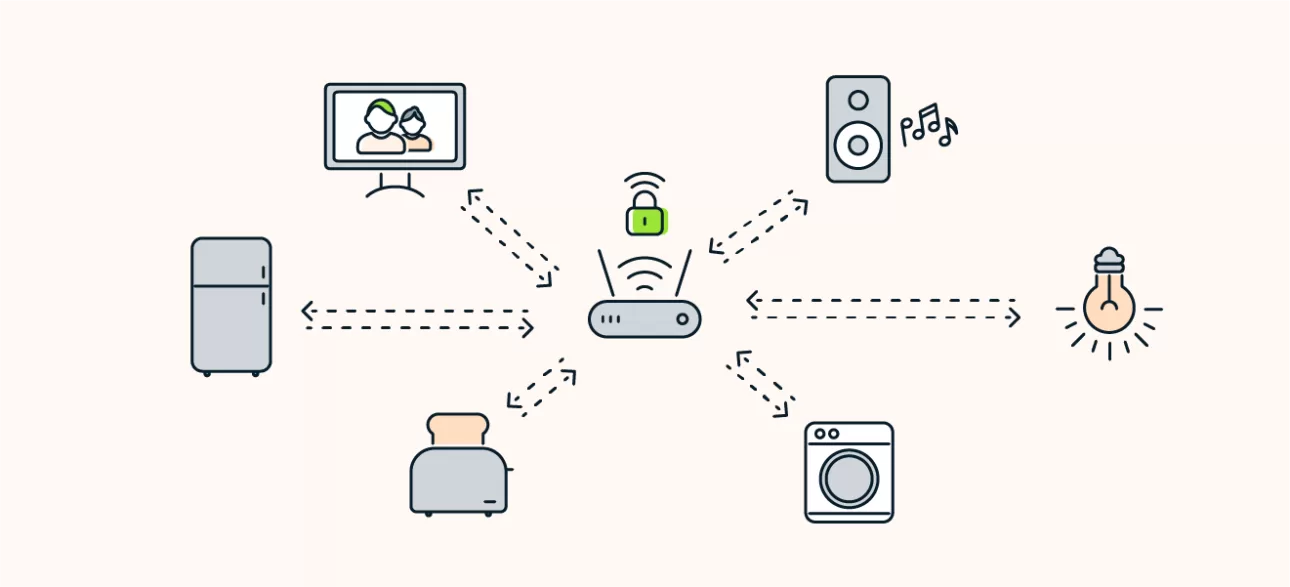
*This post contains affiliate links. We may earn a small commission when you make a purchase through links on the site. This is at no additional cost to you. Read full disclosures here
The Juicy Bit
OK, the main reason people use a VPN abroad is to watch BBC iPlayer, ITV Hub, My5, C4 etc. by ‘appearing’ to be in the UK. But it also works great if you need to access online Banking in your home country too!
Enjoy watching UK TV like BBC iPlayer, Netflix UK etc abroad: Read more
I would strongly advise everyone to read this article in its entirety at least once!
Take Online Security seriously – Please!
In this article you can learn about the many reasons why a VPN is vital for for everyone, irrespective of whether an expat, tourist or at home.
Top online anonymity threats
There are tons of different snoopers online who could discover your identity in different ways. And then there are services that require you to reveal your online identity in order to use them. Let’s find out who might be snooping on your online activity behind your back.
1. Wi-Fi networks
Whoever owns the Wi-Fi network you connect to has a great deal of power over your internet connection, including the ability to monitor what you do. Plus, on unsecured public networks, there are ways for other participants to see what other people are doing as well.
Most websites use trackers and cookies too. Cookies can be useful because they can save login sessions or shopping baskets. However, they also play a huge role in creating your ‘user profile.’ This personal information of who you are and what products or ads you’ve engaged with can then be sold to third parties. You can avoid this by deleting cookies manually after each browsing session or installing various browser plugins.
2. Internet Service Provider (ISP)
Because your ISP processes all of your traffic, they have extraordinary access to everything you do online. In most countries, they are given broad rights to profit from their internet data or to share it with government surveillance agencies.
If you aren’t using a VPN, your ISP can see what websites you visit (via their IP addresses) and how much time you spend there. They know who you are and your original IP, so without a VPN, they can trace any information back to you. In the US, they don’t even need your permission to record, share or even sell your browsing history.
With VPN software enabled, your ISP can no longer see what you do online. However, your ISP will always know your real IP address because they’ve assigned it to you. You pay for the service so they need to keep a record of your personal and payment details. The only way to cut them out of the loop is to use someone else’s internet (like public Wi-Fi), but you’ll still need a VPN so they can’t see what you’re doing.
3. Government surveillance
The anonymity a VPN provides against government surveillance will depend largely on the surveillance methods your government uses. The tools a government would have at its disposal far exceed the scope of protection a VPN provides. As far as just your internet connection is concerned, however, a VPN can go a long way to keep you private.
4. Websites
Websites need your IP so they can send you their content. Unless you’re using a VPN, that IP will be your real IP address, revealing your location and potentially other information about you. Even with a VPN, the websites can see the operating system and the browser you use, the plugins you have installed, your CPU and even whether you are currently logged into any social media platforms. Do you trust every website you visit with that information?
A VPN won’t stop you from collecting cookies – only your browser can do that. However, with a VPN, you can prevent websites and their cookies from discovering your real IP address.
Any website you upload anything, including but not limited to social media, will be able to see your metadata as well – if you have it. Metadata is data attached to your digital documents and photos that can reveal who created the document, what organization they’re a part of, when it was edited, and the device and even the software used to create it. Metadata is generated automatically for most types of documents, but it can be manually stripped off.
5. Social media platforms
Social media platforms make money from ads, so it’s in their best interest to get as much information about you as possible. From your email address and the pages you liked to the friends you interacted the most and what your face looks like – they know it all.
Your anonymity on social media depends on how much data you give up, but they generally require quite a bit just to sign up. If you willingly share this information with social media networks and the people on them, an anonymous VPN won’t protect you. You’re not protecting your privacy if you keep your social media profiles public or openly share sensitive information. If you forget to disable your location settings, social media giants and everyone else can see where in the world you are every time you post anything online. Make sure your social media profiles are as private as possible.
6. Google and other search engines
Similarly to other social media platforms, this tech giant built their business on trackers and advertising. However, the worst part about Google is that it owns a huge number of different platforms and the more apps you use, the more information they gather about you. The “user profile” they create is pretty accurate and includes a lot of personally identifiable information like your location, age, gender, things you’ve searched for, videos you watched on Youtube. Let’s not forget that Google tracks your location even if you disable your settings.
It uses face recognition technology to scan your photos, its robots crawl through your Gmail and Google Drive documents, and Chrome tracks all the websites you visit and ads you’ve engaged with. This information is used to feed you ads. You should learn how Google tracks you and look for privacy-oriented alternatives.

Recommended reading:
The best private browsers to use
7. Payment providers
Your credit card and digital payment platforms also leave a trail and can be personally identifiable. They can reveal where and when you shopped, where you boarded the train and where you got off, and which cities or countries you traveled to. Most financial systems require this level of identification, so maintaining anonymity without using cryptocurrency or cash is difficult. This is why privacy-focused companies like NordVPN now accept payments in cryptocurrency.
8. Apps
We place a great deal of trust in apps from the moment we download them onto our devices. Almost every app will ask for permission to access certain parts of your device and you’ll need to grant that access to use them. What they do with that access is up to the app’s creators.
And then there are the apps we share our private data with – messaging apps, image editing apps, and others. If you want to stay anonymous to others while browsing the web, this might not change much, but the app’s creators or service providers could still potentially access all of that identifying and private data.
When you download an app, make sure you trust the developers. Also, look for any that have good security and privacy features. For example, you can choose a private and encrypted messaging app over some of the more popular options.
Don’t let them get away with it!
One of the very best ways you can secure yourself whilst online is by using a Virtual Private Network (VPN). They act as a middleman between your device and the internet. All communication between your device (computers, tablets, smartphones) and the internet is encrypted ‘end-to-end’ making your data illegible to hackers. (Public WiFi hotspots are a favourite haunt of hackers)
Everyone should use a VPN – especially expats!

How does a VPN work?
When you download VPN software to your device, it does most of the work for you — you only need to log in and connect.
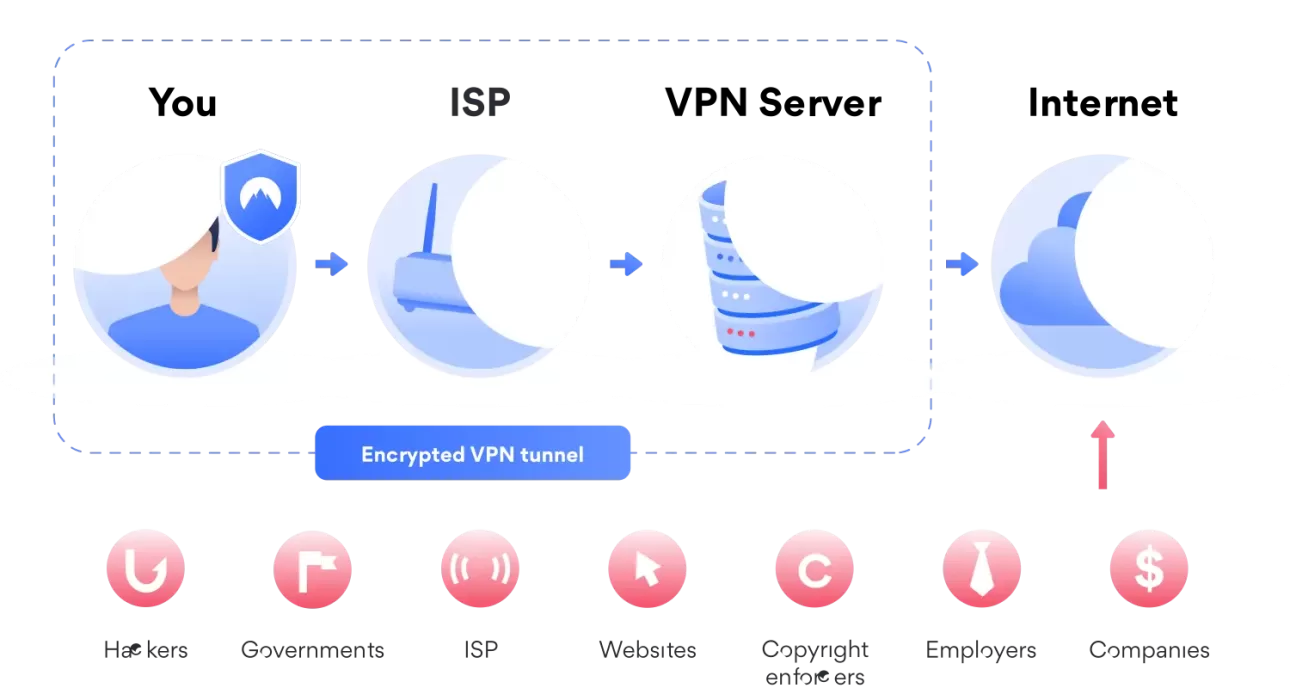
However, it’s helpful to know how a VPN works to understand the service better. Here’s what’s going on behind the scenes:
- When you connect to a virtual private network service, it authenticates your client with a VPN server.
- The server then applies an encryption protocol to all the data you send and receive.
- The VPN service creates an encrypted “tunnel” over the internet. This secures the data traveling between you and your destination.
- To ensure each data packet stays secure, a VPN wraps it in an outer packet, which is then encrypted through encapsulation. This is the core element of the VPN tunnel, keeping the data safe during transfer.
- When the data arrives at the server, the outer packet is removed through a decryption process.
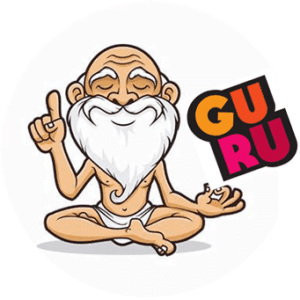
What to look for when choosing a VPN
Speed, security, and privacy
People turn to VPNs for different reasons, and whatever yours is, you need to ask three questions before choosing a provider. How fast is it? Will it keep my data safe? And will it respect my privacy? Of course, you want your connections to be safe and your data to stay private. But to have all that without losing any speed? That’s the trick. So when you choose a VPN service, make sure they don’t make any compromises – there’s no point in having unbreakable encryption if every website takes ages to load.
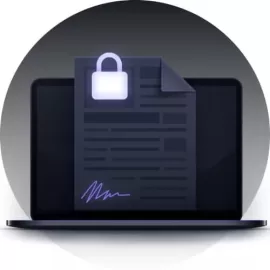
Paid vs. free
Price is one of the most important factors, no matter what product you’re buying. And if a free option comes up, people are naturally interested. But when it comes to free VPNs, it’s better to steer clear of them. Remember – you’re looking for speed, security, and privacy, and with free VPNs, you’re unlikely to get any of these features. These providers usually don’t invest in their server network or maintenance, so their VPN connections might be unstable and leaking users’ IP addresses. They also must make money somehow – usually by selling their users’ data. So instead of looking for the cheapest option, try to find a VPN provider you can trust. I have used NordVPN for over 10 years now and I am very confident in recommending them here.
Convenient & easy to use Apps
NordVPN offers dedicated apps for all major platforms. And you can protect up to six devices with a single account. Install it on your phone, laptop, your kid’s iPad, Smart T.V. or your Wi-Fi router!
Don’t want to encrypt your entire device? Use the split-tunnelling NordVPN feature and select which apps connect to NordVPN and which stay on the local network.
Can you be tracked with a VPN?
A private VPN will make it very difficult to track your online activity. It all depends on what sort of tracking you might be subject to and what you’re doing. If you’re using Chrome connected to your Google account, it doesn’t matter that your traffic is encrypted. Google will know what sites you visited and the content you interacted with. Your ISP or the government won’t be able to tell what you do online after you connect to the VPN server – but they may be able to ask Google.
If you live in a totalitarian regime that has highly restrictive internet rules, the authorities will be able to tell that you connected to a VPN, but not what you did afterward. However, NordVPN has a feature called Obfuscated servers that will help make your VPN-secured connection harder to detect.
Is NordVPN an anonymous VPN service?
Yes. While it’s practically impossible to grant absolute anonymity online, NordVPN does everything it can to provide fast and reliable security and privacy. We have an industry-leading list of powerful features to help you stay anonymous, but even so, you’ll need to take other precautions to stay anonymous. With that being said…
Here are just a few of the features that help NordVPN keep your information as private as possible:
- Strict no-logs policy: NordVPN only collect the data needed to provide their service. They are a zero-logs VPN and they believe that their industry-first audit shows that they won’t share your information with government agencies because they simply don’t have it;
- Next-generation encryption: NordVPN offers some of the best VPN protocols available, including their proprietary high-speed NordLynx protocol. Your browsing is private and cannot be seen by hackers or your ISP;
- DNS leak protection: Your traffic is routed through dedicated DNS servers so it will never leak your IP to a third-party;
- Obfuscated servers: These special servers mask the fact that you’re using a VPN connection at all. This makes it easier to enjoy unfettered internet access in authoritarian countries and other environments where VPN access may be blocked. These servers are very good for accessing BBC iPlayer & UK Netflix from abroad! Read: How to watch UK T.V. abroad
- Kill switch: Your IP shouldn’t leak even if your VPN connection drops.
- Cryptocurrency payments: Anonymous payments take you one step closer to total anonymity.
- High speed: The faster your VPN is, the more often you’ll use it and the better your privacy protection will be. This is also crucial to help mitigate any annoying ‘buffering’ when trying to watch online T.V.!

Priority: Secure your smartphone
You should never have apps on your smartphone that access sensitive data. You are more likely to loose your smartphone than you are your computer, so store all your valuable data on your computer – encrypted – and “in the cloud”. This way no one but you (or whom you permit) can access your encrypted data and it’s useless to a hacker when encrypted.
Only use Apps that are absolutely necessary. Any “payment apps” should be kept to the absolute minimum and definitely do not instal Apps to access investment portfolios or trading. All sensitive activity should be done in a secure, encrypted manner using a dedicated online ‘Vault’.
Similarly, if your computer gets stolen or blows up, it doesn’t matter – because you can easily login from another computer and access your files – everything is encrypted “in the cloud” not on the local computer!
Advantages of Using Encryption
When using the Internet, most people know to use encryption of data in transit. This is the big difference between HTTP and HTTPS traffic (i.e. whether or not the lock icon shows up in the address bar).

Using HTTPS helps to ensure that you’re connected to the right website and that no one can eavesdrop on your connection, which may include personal data like credit card information, your location, your Netflix account etc.
Expats get scammed. A lot!

In over 15 years as an expat myself, I have lost count of the amount of other expats and holidaymakers who have fell victim to scammers and data theft. Let’s face it, technology makes our life as expats and living abroad in another country much more convenient and straightforward than it ever used to be. But! (there’s always a but)
Unfortunately the increased reliance on technology hasn’t gone hand-in-hand with an increase in data security awareness.
Ignorance is bliss – unless you become a victim of data/identity theft or credit card fraud. Then it’s a nightmare!
Summary
2 Steps to take right now
1
Get a VPN and encrypt your data whilst online.
2
Get a VPN and enjoy watching UK TV like BBC iPlayer, ITVX and Netflix UK whilst abroad. Read more
3
Simplify: Remove all Apps from your Smartphone that are not absolutely necessary. Reminder of why you should do this
Stay secure online and change your location
- Stay safe online + access UK T.V. from abroad!
- Protect yourself from snoopers and hackers.
- Communicate online via an encrypted connection.
- Change your perceived online location and enjoy access to region-specific content e.g. BBC iPlayer, UK Netflix etc.


